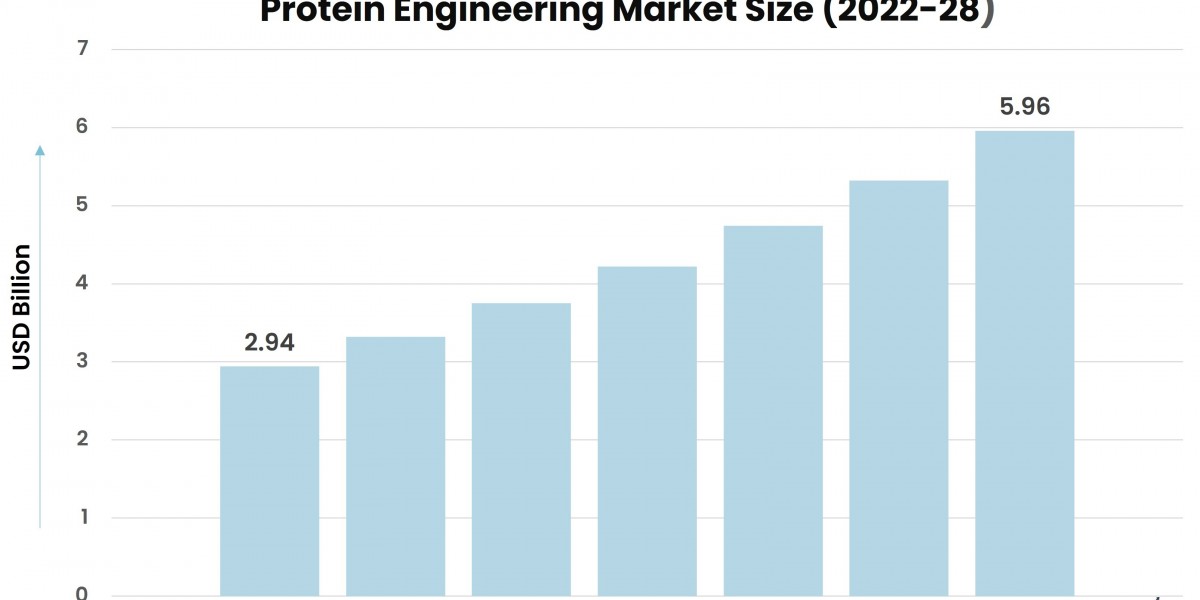The protein engineering market is on the cusp of transformative advancements, driven by cutting-edge technologies and innovative approaches. Protein engineering, the process of designing and modifying proteins to enhance their properties and functions, is set to revolutionize various industries, from pharmaceuticals to agriculture. Here’s a look at the key trends and innovations shaping the future of this dynamic field.
According to Stratview Research, the protein engineering market was estimated at USD 2.94 billion in 2022 and is likely to grow at a CAGR of 12.41% during 2023-2028 to reach USD 5.96 billion in 2028.
1. Advancements in Computational Tools and AI
The integration of artificial intelligence (AI) and machine learning into protein engineering is a game-changer. Advanced computational tools now enable researchers to predict protein structures and functions with unprecedented accuracy. AI algorithms analyze vast datasets to identify patterns and optimize protein design, accelerating the discovery of new therapeutic proteins and enzymes. These technologies are streamlining the drug development process and opening new avenues for protein-based therapies.
2. Development of Novel Protein Therapeutics
The focus on developing novel protein therapeutics is driving significant innovation in the market. Engineered proteins are increasingly used to create targeted treatments for complex diseases, including cancer, autoimmune disorders, and genetic conditions. Bispecific antibodies and fusion proteins, for instance, are designed to simultaneously target multiple disease pathways, offering enhanced efficacy and reduced side effects. Advances in protein engineering are enabling the creation of more precise and effective therapeutic options.
3. Bioengineering and Synthetic Biology
Bioengineering and synthetic biology are playing crucial roles in advancing protein engineering. Researchers are utilizing synthetic biology to construct novel protein pathways and biosystems, enabling the production of proteins with tailored functionalities. Techniques such as CRISPR-based gene editing are being employed to create custom-designed proteins with improved performance characteristics. This innovation is expanding the range of applications for engineered proteins in fields like biotechnology, materials science, and environmental solutions.
4. Protein Engineering in Agriculture
The application of protein engineering in agriculture is gaining traction. Engineered proteins are being used to enhance crop traits, such as resistance to pests, diseases, and environmental stresses. For example, genetically modified crops with engineered proteins can exhibit improved growth rates and higher yields. Additionally, proteins are being developed for sustainable agriculture practices, such as bio-based fertilizers and soil conditioners, contributing to more eco-friendly farming practices.
5. Personalized Medicine and Diagnostics
Protein engineering is also advancing the field of personalized medicine and diagnostics. Engineered proteins are being used to develop highly sensitive and specific diagnostic assays, enabling early detection and personalized treatment of diseases. Innovations in protein-based biomarkers and diagnostics are improving the accuracy of disease diagnosis and the effectiveness of personalized treatment plans.
6. Sustainability and Green Chemistry
Sustainability is becoming a key focus in protein engineering. Researchers are exploring ways to develop eco-friendly protein production processes and biodegradable proteins that reduce environmental impact. Green chemistry principles are being applied to ensure that protein engineering practices are both effective and environmentally responsible.
Conclusion
The protein engineering market is poised for substantial growth, driven by advancements in computational tools, novel therapeutics, bioengineering, and agricultural applications. The integration of AI, synthetic biology, and sustainability practices is shaping the future of this dynamic field. As researchers continue to push the boundaries of protein engineering, the market will witness innovations that promise to revolutionize industries and improve global health and sustainability.








